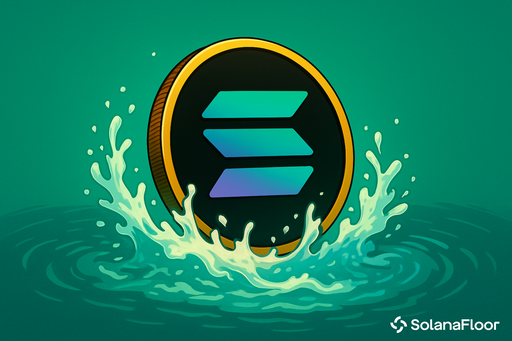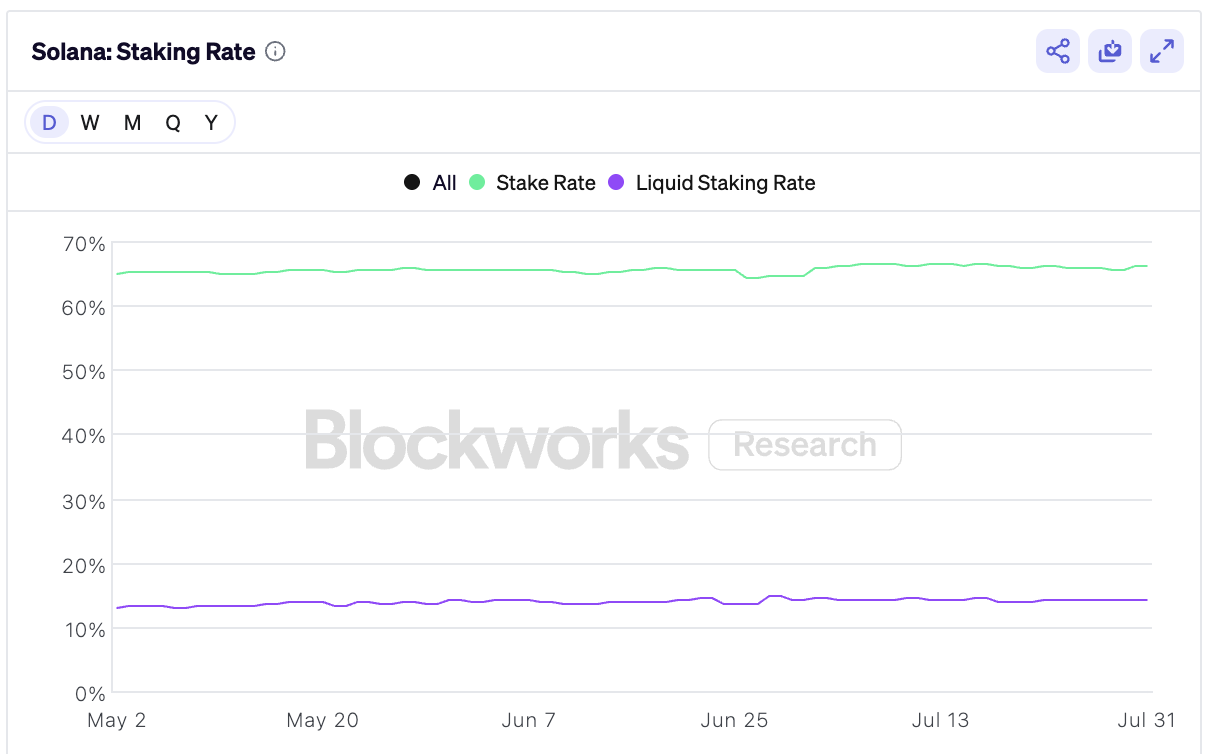
SEC: Liquid Staking Activities Are Not Securities
LSTs have evolved from a creative experiment into a government-regulated financial asset
- Published:
- Edited:
In its ongoing mission to make the United States the “Crypto Capital of the World”, the SEC has issued a progressive statement regarding LSTs (Liquid Staking Tokens).
LSTs are rapidly becoming a key piece in the composition of Solana ETFs, with a proposed rule change to the approvals process potentially making LSTs an integral part of Solana’s future in TradFi.
SEC’s Stance on LSTs Promising For Solana
On August 5, the SEC declared that Liquid Staking activities do not involve the offer and sale of securities, effectively bringing some much-needed regulatory clarity to the asset class.
The SEC’s statement serves as a vote of confidence for the LST sector, which now has a clearer framework to innovate, onboard institutional capital, and grow staking-based products without the threat of facing securities-based lawsuits.
However, while the Solana community has celebrated the SEC’s declaration, there might still be a catch. The statement asserts that Liquid Staking Activities are not considered securities “unless the deposited Crypto Covered Assets are part of or subject to an investment contract”.
This legal caveat implies that liquid staking activities will not be subject to Securities Laws only so long as the underlying asset is not considered a security. This is unlikely to affect large-cap altcoins like Solana, which the SEC has seemingly removed from security contention when amending a former lawsuit against Binance in July 2024.
LSTs Could Play a Key Role in $SOL ETFs
Once considered an experimental workaround to give holders flexibility without sacrificing staking rewards, LSTs are now front-and-center with some of Wall Street’s best-performing funds.
REX-Osprey’s Solana Staking ETF, $SSK, debuted emphatically earlier this year, with Bloomberg ETF analyst Eric Balchunas ranking the fund in the top 1% of ETF launches. Thanks to a clever legal workaround, $SSK was able to beat ETFs from rival issuers to market courtesy of its unorthodox composition of Solana Staking ETP shares and $jitoSOL tokens.
In late July, Cboe (Chicago Board Options Exchange) proposed a rule change that would streamline the approvals process for crypto asset ETFs. As part of its filing, Cboe stipulated that funds would be required to have a “liquidity risk management” program in place if less than 85% of its assets were not immediately available for redemption.
LSTs could provide a convenient solution to this restriction. As the name suggests, LSTs are inherently liquid and would enable ETFs to earn staking yield without subjecting themselves to Solana’s 2-3 day unstaking period. Alternative solutions could also include Marinade Finance’s instant unstake, which would theoretically give funds immediate access to staked assets in order to service redemption requests.
LST Staking Rate Continues to Climb
With protocols like Sanctum democratizing LST creation for validators across Solana, Liquid Staking rates on the network are enjoying consistent growth.

According to Blockworks data, Solana’s Liquid Staking rate has risen by 33.1%, climbing 3.59 percentage points to currently sit at 14.43%. If more prospective ETFs opt to include LSTs in their AUMs, this rate is expected to increase significantly.
In the wake of Cboe's filing, major players from across the Solana ecosystem rallied to petition the SEC, arguing the case for the inclusion of LSTs in $SOL ETFs.
Read More on SolanaFloor
The Solana Seeker is finally here
Solana Seeker Review: Is It Worth the Hype?
What Are LSTs?


